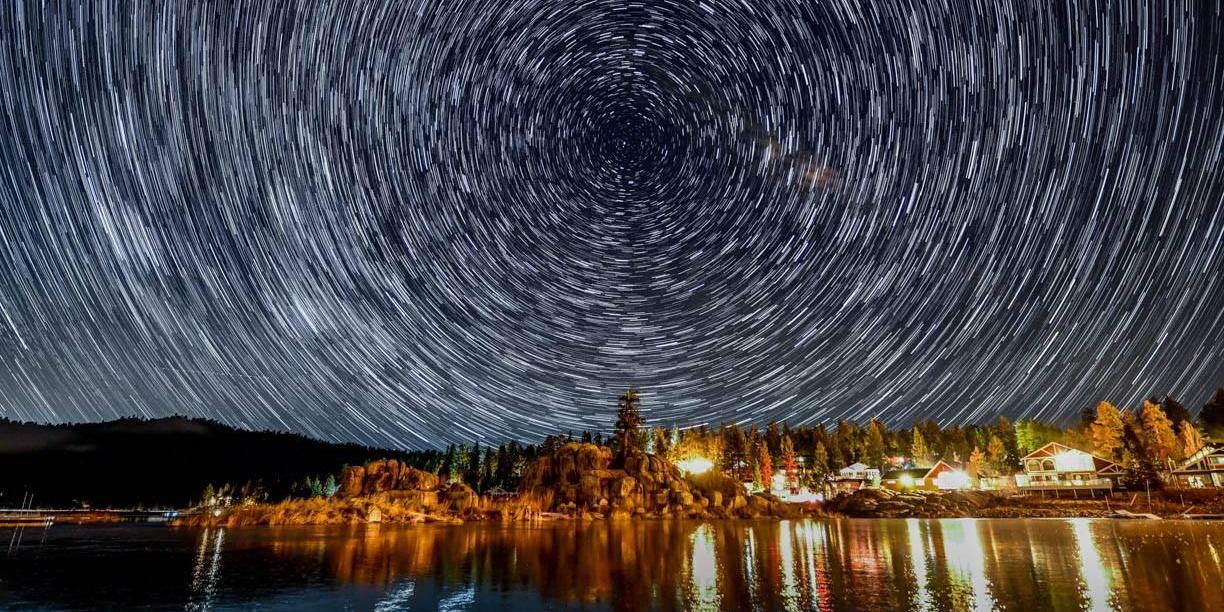Big Bear Stargazing
Take in the Night Sky Above Us!
Big Bear Lake sits in an ideal location for stargazing and night sky photography. Away from the bright, big city lights and at its high altitude, the night skies over the Big Bear valley stay dark enough to view constellations, meteor showers, and even the Milky Way!
However, the beautiful night sky is what we make it. Help us conserve our dark skies by turning off unneeded lights and limiting landscape lighting when the sun goes down. Not only will you make the night sky better, you'll be conserving energy as well!
The sky is the ultimate art gallery just above us. Ralph Waldo Emerson
Celestial Events & Fun
Big Bear Solar Observatory Tours
Tour the Big Bear Solar Observatory! Reservations are required, please call 909-866-5791 x210 or email norro@njit.edu or use the link below. Tours are FREE but donations are welcome.
Astronomical Society Monthly Meetings
The Big Bear Valley Astronomical Society meets on the 2nd Thursday of the month at 6 PM via Zoom. The public is welcome to join us, chime in or just listen.
Find Zoom link for the next upcoming meeting >>> HERE
Big Bear Stargazing 101
- Find a location away from bright lights with a wide view of the sky.
- It will take your eyes about 10-15 minutes to adapt to the dark. Use a red flashlight to keep your dark adaption intact.
- If you are new to stargazing, use a pair of binoculars. Many celestial objects are visible with binoculars, including the moon and planets.
- Download a stargazing app to help you navigate the sky above.
Start your star search with The Sky Live.
